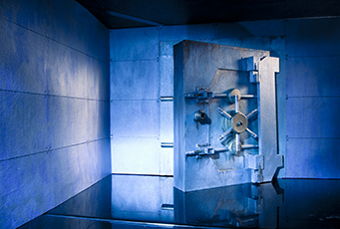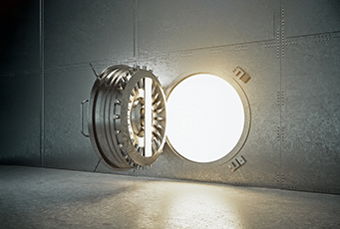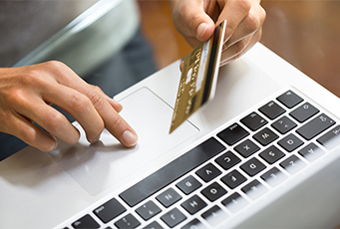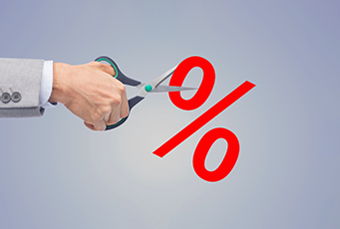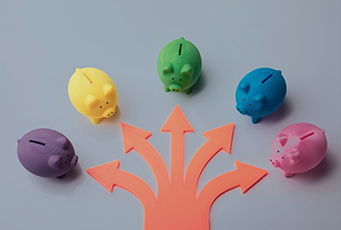
Why did you decide to bank with your current provider? My first bank was the same community bank my parents used. When I moved out of state, I picked my new bank purely out of convenience. A branch of a national chain was located right across from my apartment. Looking back, I wish I had put more thought into my decision. How about you?
So, What Are My Options?
The four primary types of financial institutions include national banks, local banks, credit unions, and online banks. Each one has its own set of pluses and minuses.
National Banks
Banking with a well-known national bank certainly has its upsides. Big banks have offices from coast to coast with branches and ATMs all over the world. National banks offer a diverse range of products and perhaps more customizable home loan options, but you may encounter more red tape than with a smaller bank.
Local Banks
Local banks are invested in the community. When you deposit money at a local bank, it uses your funds to make loans to other community members. And, since you often can have a face-to-face discussion with a representative when you apply for a loan, the process is more personal and usually much faster. The obvious downside to banking locally is the lack of bank branches outside your geographic area.
Online Banks
Online banks exist only on the internet. They have no brick-and-mortar storefronts. What online banks save on overhead costs they pass along to customers in the form of higher interest-bearing deposit accounts and lower fees. The low-cost, high-yield savings accounts make them a good place to park your emergency fund! But don’t bank online if you prefer a personal touch!
Credit Unions
Credit unions aren’t technically banks—they’re owned by their members, whereas banks are owned by shareholders—but they operate much in the same way. You can deposit money, open a checking account, or secure a loan, just like you would with a bank. You must meet certain criteria to become a member, such as geographic location, place of employment, association memberships, or family ties. Credit unions are known for quality customer service, low fees, and higher interest rates on deposits when compared with traditional banks.
Compare Charges
Are interest rates your highest priority when looking for a bank? You can look at interest rates in two ways: interest paid on deposits and interest charged on loans. The higher the percentage rate of interest the bank pays on deposits, the better for you. But the opposite is true when it comes to interest the bank charges on loans or credit card balances. Be sure to look at both!
Another thing to watch for: how banks handle ATM fees. You won’t owe a fee when you use your institution’s ATM but when you withdraw cash from a non-network ATM, you’ll likely be charged a fee. According to GoBankingRates.com, the average out-of-network ATM fee is $2.52. Banks differ in how they deal with out-of-network ATM fees. At one end of the spectrum, they’ll reimburse every fee; at the opposite end, they’ll charge a small fee. Banks that reimburse fees, subject to a monthly limit, are right in the middle. If you often rely on ATMs, look for banks that don’t charge out-of-network fees.
Those aren’t the only fees to look for. Other fees may be charged for annual maintenance, low balances, account overdrafts, checkbooks, foreign transaction, paper statements, excess savings withdrawals and account inactivity. I can’t tell you how shocked I was when my banker informed me a box of checks would cost me $20!
Other Factors to Consider
If you like to have information at your fingertips, perhaps a bank with a mobile app using the latest technology would suit you well. Nowadays you can deposit checks, transfer money from account-to-account or person-to-person, and check your credit score with a few taps on your smartphone.
Ethics may also play a role in your decision making. Ten years have passed since the financial crisis that was partly caused by bad lending decisions. More recently, some banks have fallen under scrutiny for unethical cross-selling practices that resulted in employee bonuses.
And have you ever seriously considered one of those new account promotions such as sign-up bonuses that banks use to attract customers. Beware! A $200 sign-up bonus is not as good a deal as it seems. It’s considered taxable income, so the bonus is more like $126 to $180 after you pay the tax. Looks can be deceiving!
Conclusion
Be intentional about where you keep your money. Examine the costs, benefits, and culture. Then, choose the organization that best fits your needs.


